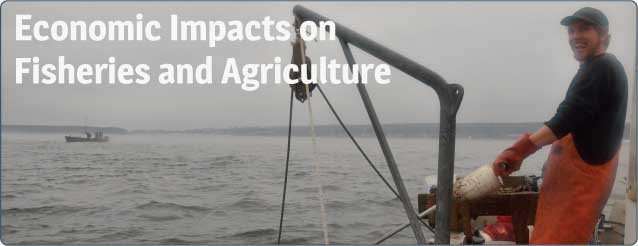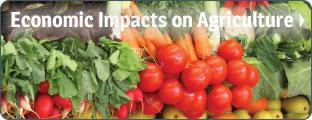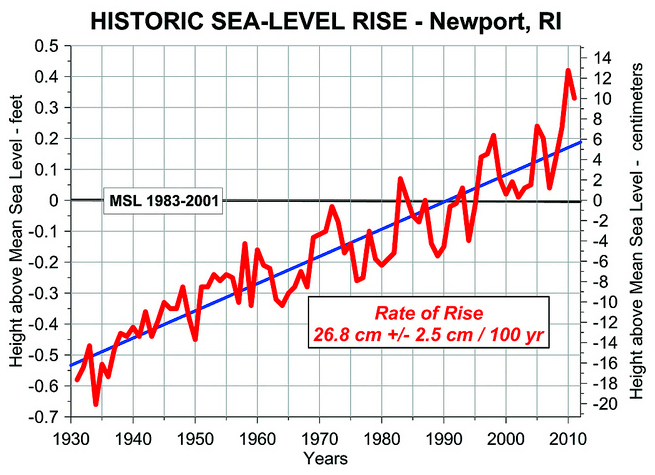
Photo Credit: Rhode Island Sea Grant
By Land and By Sea
Living off both the sea and the land is a hallmark of Rhode Island’s history.
From striped bass, winter flounder, lobster and quahogs, Narragansett Bay has provided a bountiful fishing harvest for generations. Likewise the corn, tomatoes, assorted green vegetables and fruit that grow across the region have been a mainstay of the local diet.
The economic value of these resources is inestimable. But due to changes the state
 Photo Credit: University of Rhode Island
has experienced in climate, one has seen the winter flounder virtually disappear from area waters, and lobsters change their patterns to become scarcer locally. On the other side of the coin, increased agriculture and a recent explosion in Rhode Island’s farmer’s markets paint a much rosier picture for residents growing their own produce.
Photo Credit: University of Rhode Island
has experienced in climate, one has seen the winter flounder virtually disappear from area waters, and lobsters change their patterns to become scarcer locally. On the other side of the coin, increased agriculture and a recent explosion in Rhode Island’s farmer’s markets paint a much rosier picture for residents growing their own produce.
Both industries have been very innovative — and often very successful — in their marketing, through ideas such as Trace and Trust, which directly markets locally caught fish to Rhode Island restaurants, along with Rhody Fresh dairy products, and Farm Fresh Rhode Island produce.
Fisheries and agriculture — as well as burgeoning hybrid farming practices and aquaculture — are critical to the future economy of the state and region, and give optimism to residents growing their own produce as well as a very enthusiastic crop of new customers.
One of the big questions in the climate change debate: Are humans any smarter than frogs in a pot? If you put a frog in a pot and slowly turn up the heat, it won't jump out. Instead, it will enjoy the nice warm bath until it is cooked to death. We humans seem to be doing pretty much the same thing.
- Jeff Goodell
News
“Tourists Are Flocking to Locations Threatened by Climate Change. That Only Makes Things Worse.” Vox
Factoids
Climate change could make it more difficult to grow crops, raise animals, and catch fish in the same ways and same places as we have done in the past.
Rhode Island agriculture needs water for sustaining locally produced corn, vegetables, milk and eggs. Hotter days will demand more water and will compete with other water uses.
Seasonal fish, such as scup, squid, butterfish, summer flounder and striped bass, have increased dramatically and are now more common than resident fish. Narragansett Bay is now more hospitable to fish from the mid-Atlantic area and less hospitable to resident fish that naturally evolved for the southern New England area.







